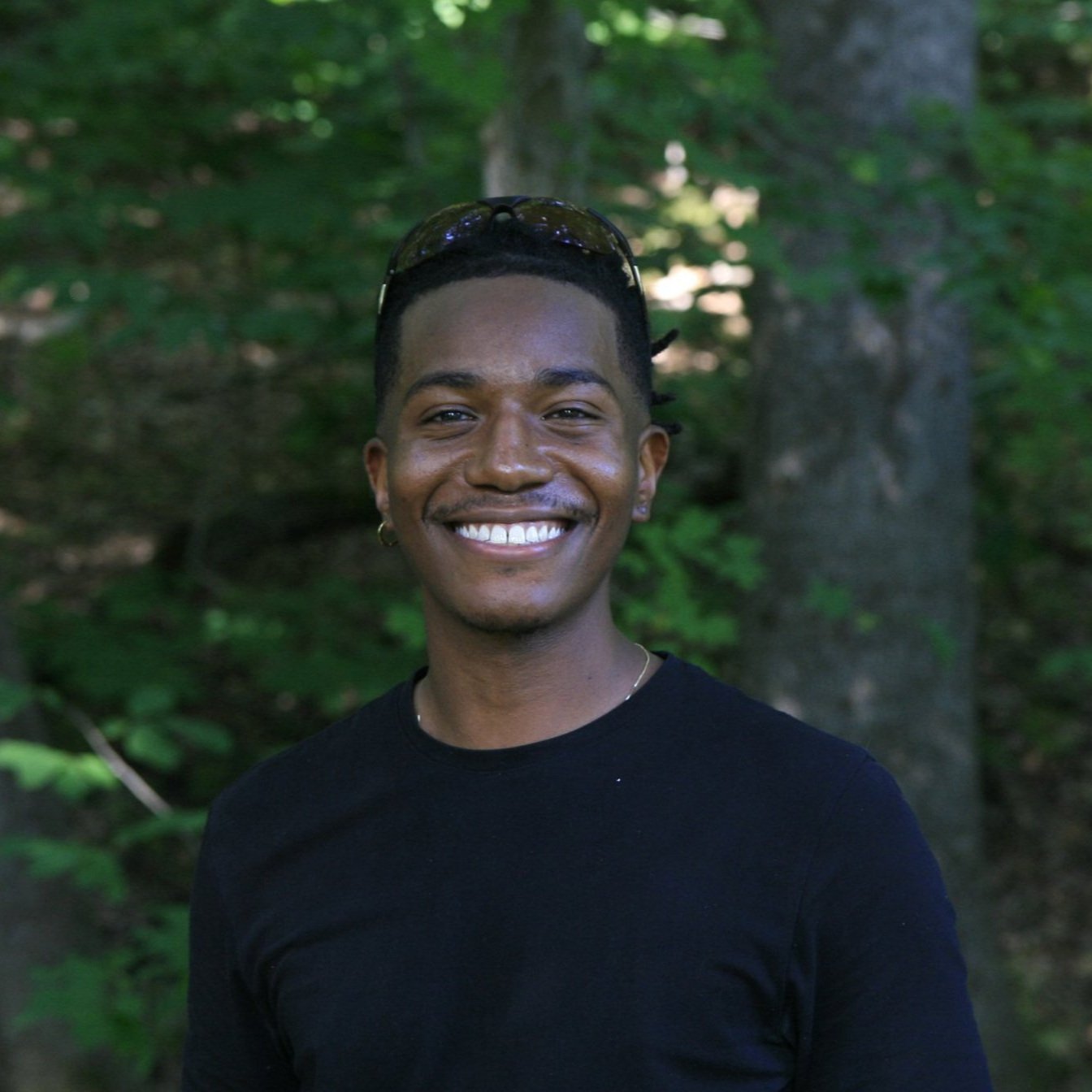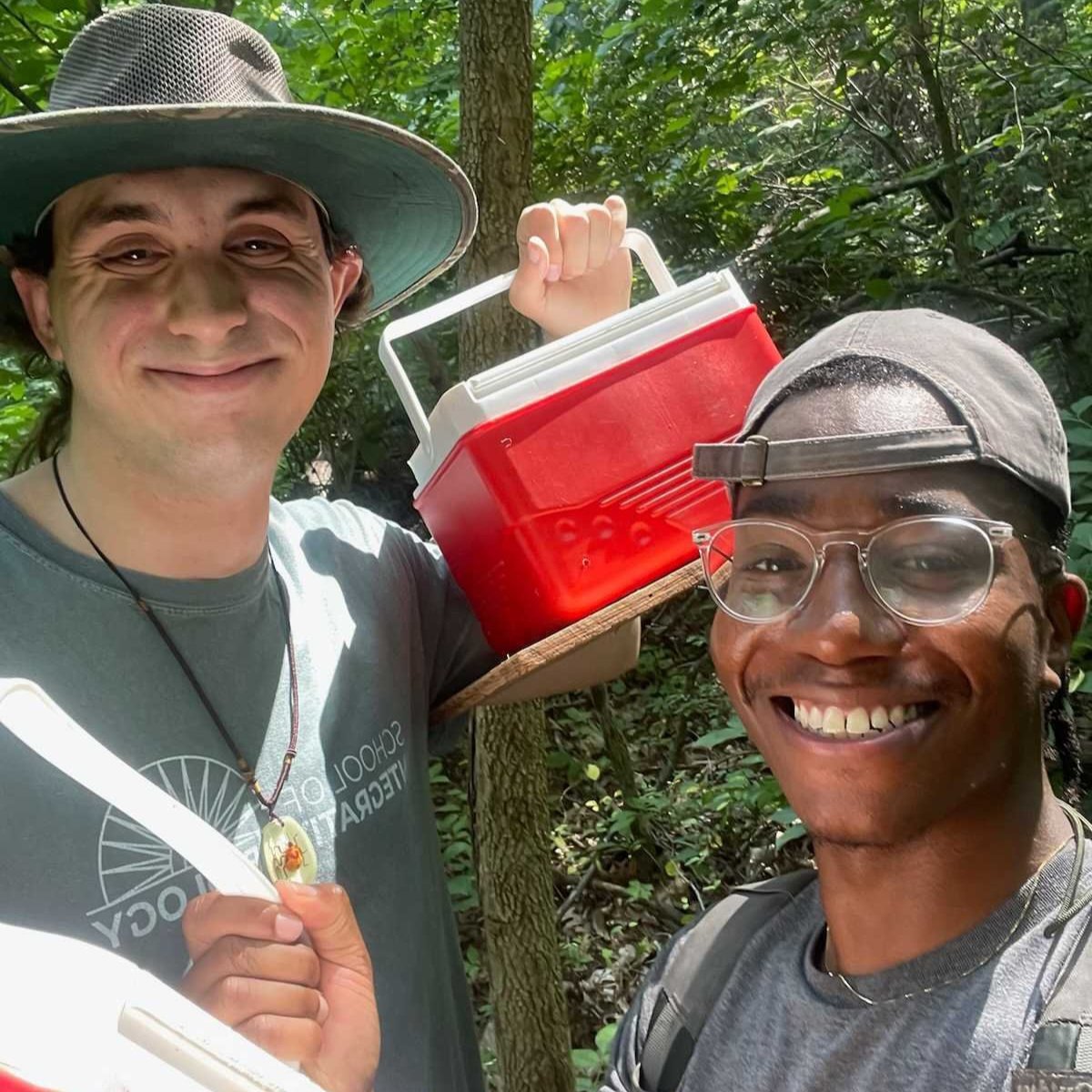Humans of Tyson 2023
Derek McFarland
he/him
Visiting Graduate Student
How did you get here? What brought you to Tyson?
Originally? [Derek has spent five summers here, both as an undergraduate fellow and graduate student.] I got involved with Tyson in a roundabout, weird way. It was life-changing, I’d say. The summer after my sophomore year, I was in a summer program at SLU called the McNair Scholars Program. My mentor hooked us up with Solny [Adalsteinsson], who works here at Tyson. We started a project looking at how ticks were being a burden on birds. So yeah, this network of people that wanted to invest in me brought me here and helped me become a scientist, which I thought was really cool. I think it was the community of mentorship that really fostered me being here. [Derek wipes his cheeks.] I don’t know if these are sweat or tears! It’s really interesting how networks and mentorships and all of these different things coalesce into a great opportunity. And I wouldn’t rather be anywhere else for the summer. I think everyone agrees that it’s a great atmosphere, especially for students to grow and learn.
Why did you choose to research ticks and disease ecology?
“Tyson invests in the people that are doing the science, and prioritizes that over the research sometimes, which is a good thing.”
For the longest time, I wanted to be a veterinarian, until I figured out research was a thing. I tried to hold onto that dream of going to vet school even while simultaneously pursuing graduate school. But then, I discovered ticks. The fact that they interconnect different organisms, including humans, was fascinating to me. It opened my mind to the possibilities of not just studying cats and dogs for the rest of my life. I could study this rich abundance of wildlife in nature. Not that ticks aren’t exciting in themselves, but it was cool that ticks allowed me to be limitless in my research prospects. I could study humans and disease and all of that, and also ticks’ impact on wildlife and the environment.
How does working at Tyson feel different to other research jobs?
I’ve had experience with other research labs and I’d say they are more focused on productivity. Not that Tyson isn’t focused on productivity, because they are, but other research labs are more focused on productivity than they are on people. And so I think that’s the main difference. Tyson invests in the people that are doing the science, and prioritizes that over the research sometimes, which is a good thing. Because without people, there is no research, and I guess there’s no reason to do the research without people. Which is an anthropogenic-centric way to think, but it’s true [laughs].
Anything else?
Tyson dogs. I will fight for them. They’re my number one. I love Tyson dogs. More places should allow people to bring pets. It helps! I think I’ll leave on dogs. That’s a good spot.


